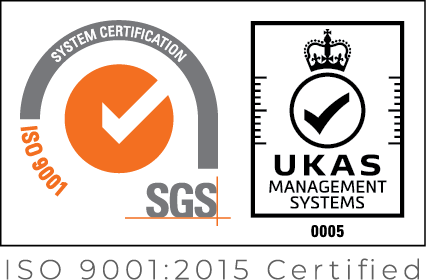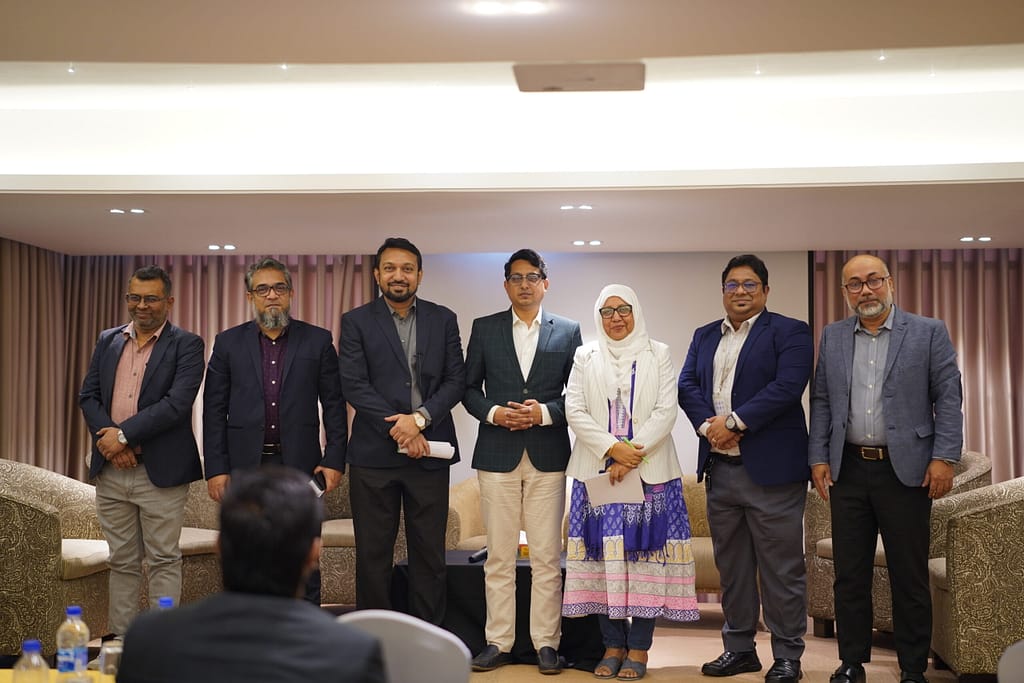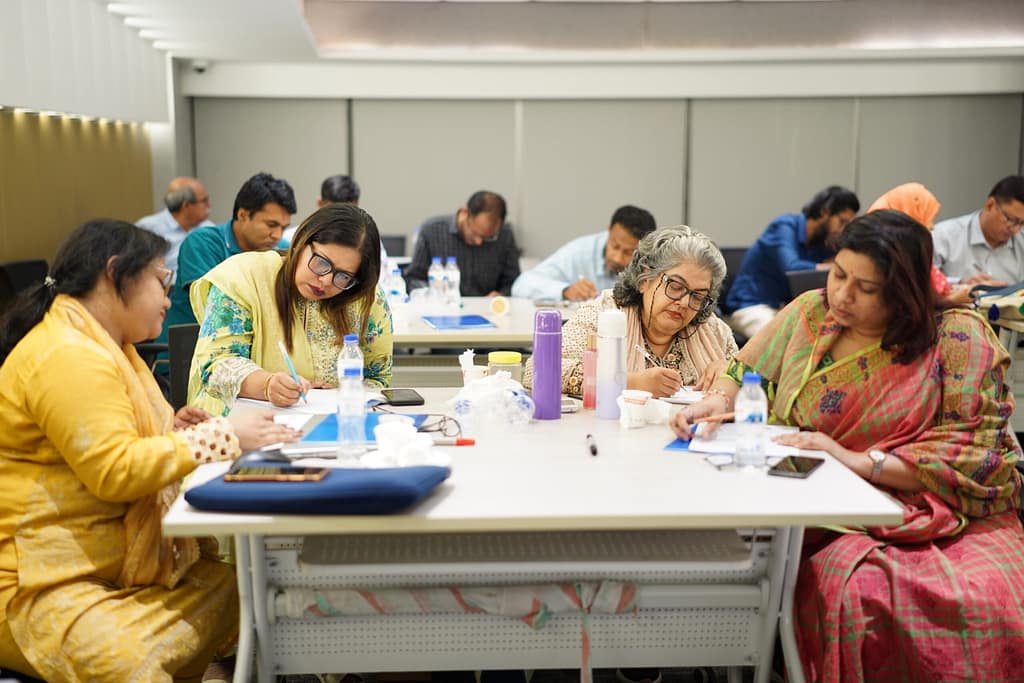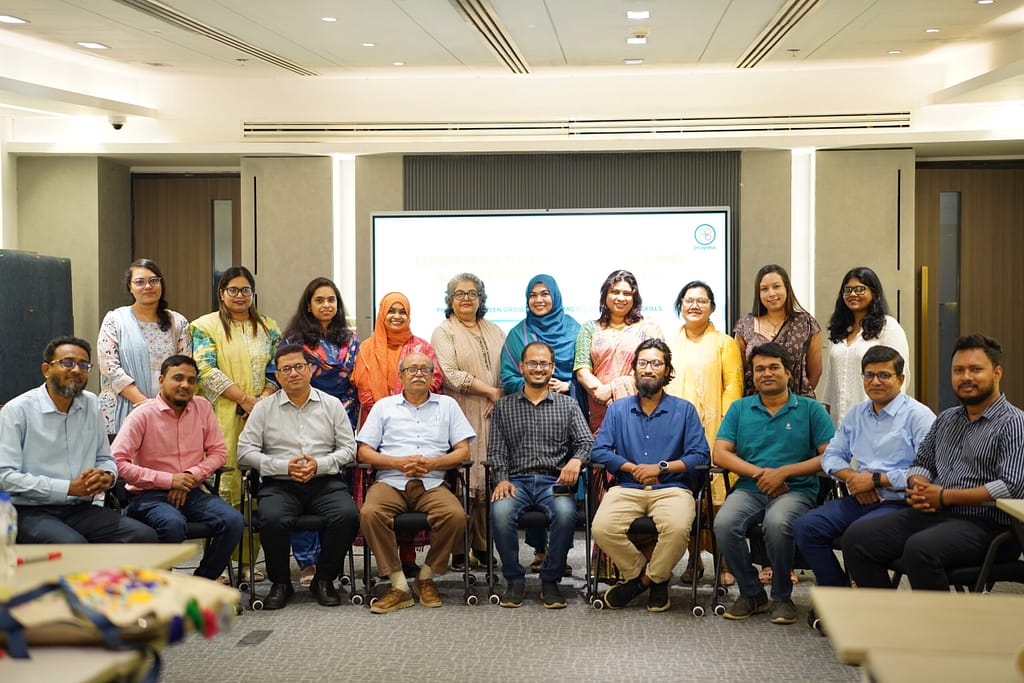“Swisscontact” and “The Sustainability Nexus Ltd (SusNex)” have hosted a workshop to train local consultants in offering sustainability-centric reports as a commercial product to businessmen, with a particular focus on helping the RMG sector become more ESG compliant.
The workshop titled “Empowering the Future: Transforming Business Through Sustainability Reporting” was held at a hotel in the capital.
The workshop aimed to foster dialogue on the challenges and opportunities for local technical consultancy service providers in offering sustainability reporting as a commercial service. This workshop is a key part of Swisscontact’s PROGRESS project, funded by the Swedish International Development Cooperation Agency (SIDA) and represented by the Embassy of Sweden.
Participants included professionals from consulting firms, RMG and textile factories, banking and financial institutions, buying houses, as well as global apparel brands.
The workshop’s primary goal was to explore the capacity development of local consultancy providers and individual consultants, equipping them with the tools to adopt sustainability reporting as a commercial service. By empowering local experts, the project aims to help the RMG sector meet the growing demand for ESG compliance and remain competitive in the global market.
The event began with welcome remarks from Swisscontact and SusNex. Rahul Singh, regional manager for South Asia at the Global Reporting Initiative (GRI), also joined to emphasise the importance of sustainability-focused reporting in fostering accountability and transparency in business operations.
A key highlight of the workshop was an engaging panel discussion moderated by Towfique Hasan, director of business development and partnerships at SusNex. In the discussion, industry experts shared insights on the challenges and opportunities in sustainability reporting.
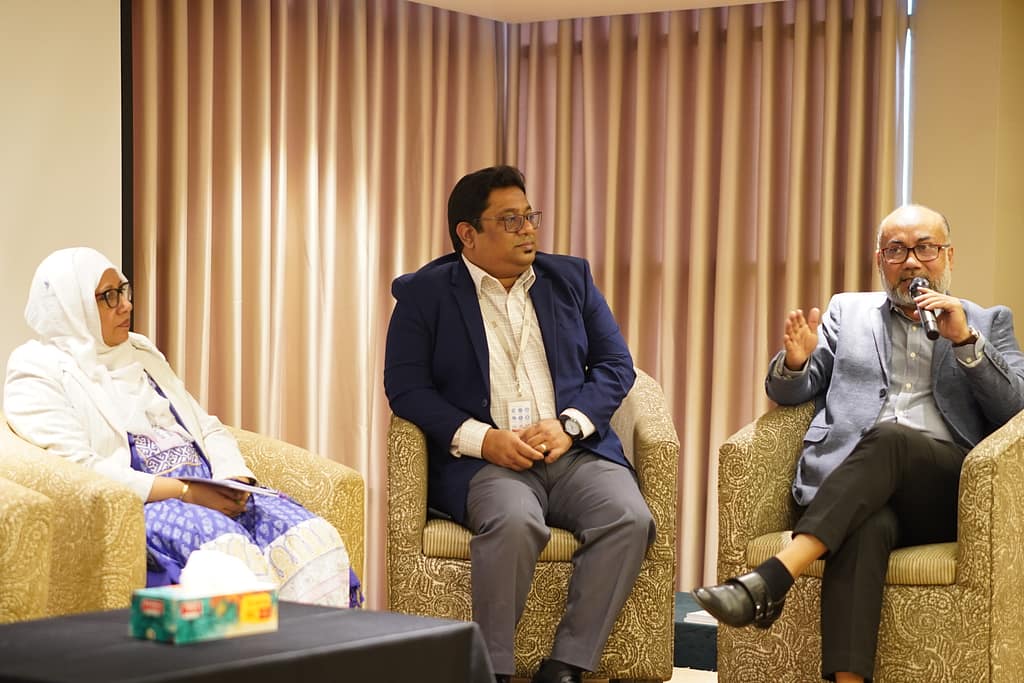
Dr Mohammad Nazmi Newaz, head of the Management Department at the Bangladesh Institute of Management (BIM), discussed strategies for building institutional capacity to support companies in achieving their sustainability reporting goals.
Masud Ali Choudhury, national consultant for the UNDP’s WING Project, highlighted strategies for consulting firms to navigate sector-specific challenges, identify growth opportunities, and deliver sustainable solutions.
Aleya Aktar, CHRO of Desh Group of Companies, spoke about streamlining internal processes to ensure accurate and impactful reporting.
Shabab Ahmed Mahfuz, technical operations manager at SGS Bangladesh Ltd, addressed resource constraints and shared approaches for developing robust reporting mechanisms.
Basirun Nabi Khan, general manager of compliance at Centro Tex Ltd, outlined practical strategies for addressing data collection challenges in supply chains.
Rajib Ul Haque, a GRI-Certified Professional, emphasised tools and capacity-building initiatives to align with global reporting standards. The panel underscored the importance of collaboration, innovation, and tailored solutions in advancing sustainability reporting in Bangladesh.

During the question-and-answer session, a key question was raised: Should businesses or expert consultants be responsible for sustainability reporting? The consensus was that expert support is essential to meet the demand for transparent and reliable disclosures. Led by Montasir Nahid, Director at SusNex, the discussion emphasized the need for industry-specific content and specialized training to strengthen in-house reporting capabilities. Experts highlighted the importance of applying GRI standards, ensuring data accuracy, and fostering collaboration. The insights from this workshop will inform a training module to enhance sustainability reporting, helping Bangladesh move towards a more transparent and competitive business environment.

